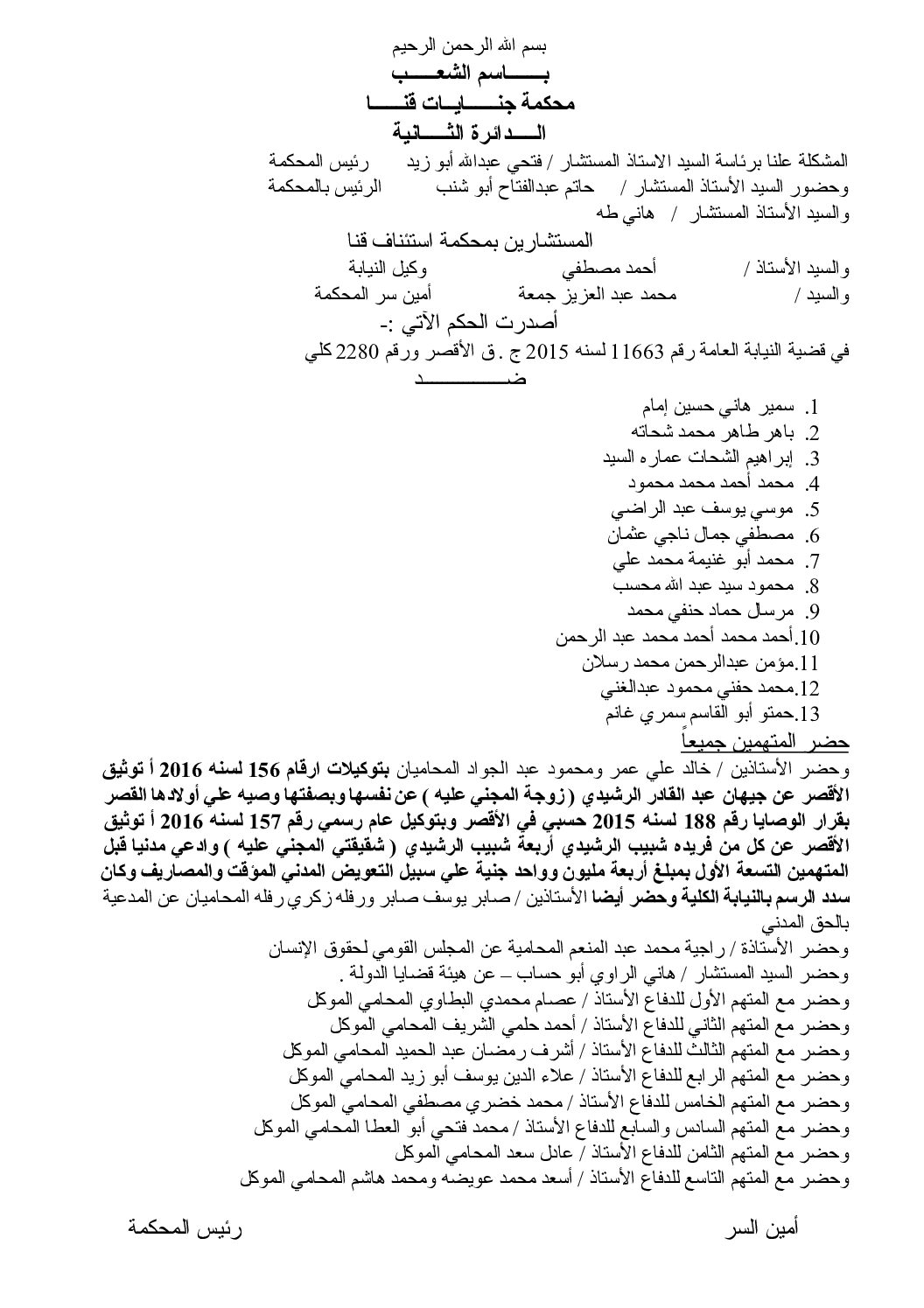Protest Movement – August 2012, 2nd Half
Protests Subside After Officials Promise to Resolve Crises
The activity rate for the protest movement fell significantly during the second half of August
The Egyptian Center for Economic and Social Right’s reported 148 events as compared to 262 events in the first half, after some citizens and workers received promises from officials that the crises will be solved, especially the power cuts which were the cause of numerous protests during the months of July and August.
A detailed look at these demonstrations will reveal that the majority were carried out by the local residents, 58 instances of protest were carried out by the general public/citizens, while the government sector witnessed 49 instances, the private sector came in at third place with 17 cases, the public works sector carried out 13 cases of protest. Entrepreneurs came in at 5th place with 7 cases of protest, students carried out 2 cases, while members of trade unions and political parties were one case each.
The forms of protest varied: there were 36 protest rallies, 26 cases of workers’ strikes, 23 sit-ins, 22 demonstrations, 16 cases of public assembly, 13 cases of road blocking, five hunger strike cases, two cases in which an official was taken hostage, two cases of self-immolation, one protest march, one case of storming a government institution, and one case of refusing medical treatment.
As for the groups protesting: citizens/the general public came in first place with 56 incidents of protest, company and factory workers came in second with 30 incidents, government workers in third place with 15 incidents, the medical sector “doctors, nurses, and technicians” in fourth place with 13 incidents, teachers in fifth place with 11 incidents, business owners in seventh place with six incidents of protest, non-commissioned police officers in seventh place with four incidents, two incidents for all of drivers, workers at universities, students, and university graduates. As for cleaning workers, pensioners, [political] party members, archeologists, and trade union and syndicate workers, one case of protest was recorded for
each.
As for the number of protests, Cairo held the first place by 32 cases of protest, Al-Gharbaya 18 incidents, Al-Sharqaya 15, Ismailia 11, Assiut and Al-Minya seven incidents each, Kafr Al-Sheikh and Alexandria six each, five cases for each of Suez, Qlaubaya, Daqahlaya, and Fayoum, the New Valley governorate four cases, Port Said and Menoufaya three cases each, Marsa Matrouh, Giza, Damietta, Behayra, and other governorates each had 2 incidents of protest, and one incident of protest in each of Bani Suweif, Luxor, Qena, Aswan, Sohag, and South Sinai.
The issues of improving living conditions, increasing wages, payment of incentives and allowances head the protests, where 25 protests called for this. 21 incidents of protest were because of the issues of lawlessness and hooliganism/thuggery, nine incidents in which protesters called for full time employment, seven incidents because of water cuts, six incidents calling for the return of companies that had been privatized to the public sector, five incidents because of unfair dismissal, five incidents protesting the removal of street vendors, four incidents demanding the release of detainees, three incidents of protests against power outages, three incidents protesting the contamination of drinking water, three incidents protesting irrigation water shortages, three incidents where protesters demanded the legalizing the conditions of land squatters, three incidents because of arbitrary transfer, two incidents because of bread shortages, two incidents because of the increase in the age of kindergarten attendance, two other incidents because sewage water covered two structures, two incidents to protest the delay of trains, two incidents of protest rejecting the IMF loan [to Egypt], and two to demand that employees be restored to their places of work/ employment.
Some workers protested the closure of the factory [where they are employed], increase in work hours, and work-related accidents.
As for citizens, some protested against the absence of a forensic pathologist, bread shortages, delayed trains, the late arrival of baggage, the death of a child, against the building of a mobile relay station, against land seizures, the increase in rental rates of land, the closure of a bakery, an increase in transportation fares, some demanded a kiosk, and the construction of a pothole.
University graduates demonstrated, demanding jobs, putting an end to favoritism and nepotism, and demanded that they be allotted agricultural land.
Transport drivers protested because new cars were introduced to the lines and the increase in passenger tariffs.
Most of the doctors’ and nurses’ protests were against the state of lawlessness and thuggery taking place in most hospitals at the moment, and to demand the payment of their incentives.
Non-commissioned police officers protested against the jailing of one of their colleagues, against the theft of an official/governmental weapon, and to demand the return to work.
University students demonstrated against the open education system and demanded the return of the guided affiliation system and demanded an end to the Nile University crisis.

